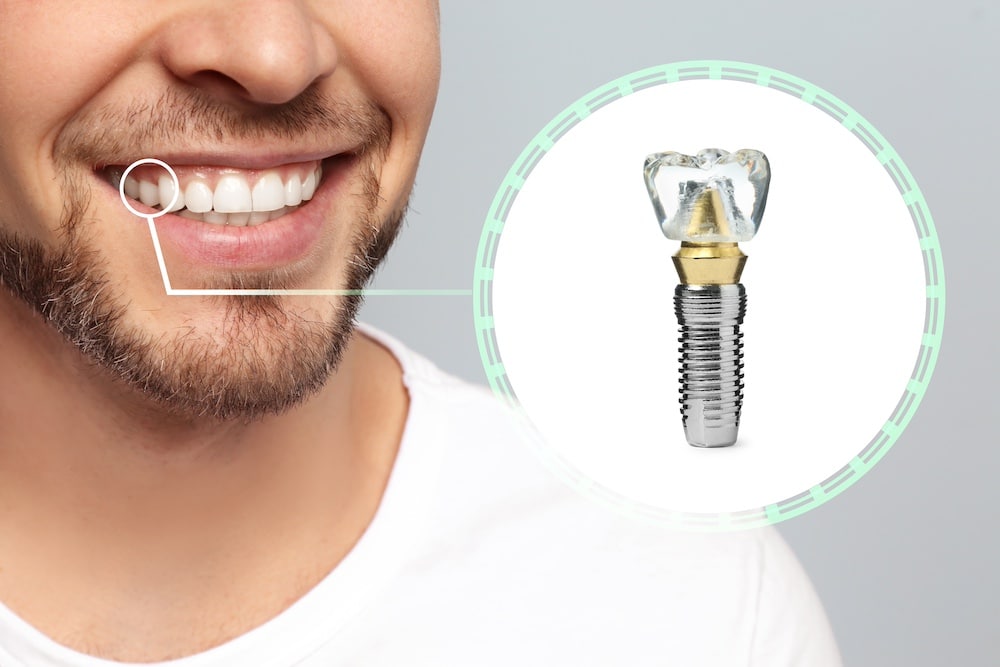Dental implant healing stages are crucial for successful tooth replacement. Understanding the recovery process, from immediate post-surgery care to final restoration, can help patients navigate their implant journey with confidence. Whether you’re considering implants or already on the path, knowing what to expect during each stage is key to optimal healing and long-term success.
Dental Implant Healing Stages: A Comprehensive Guide
Are you considering dental implants but unsure about the healing process? Understanding the dental implant healing stages is crucial for a successful recovery. Let’s explore each stage and what you can expect during your journey to a restored smile.
Understanding Dental Implants
What are Dental Implants?
Dental implants are artificial tooth roots surgically placed into the jawbone to support replacement teeth. They offer a permanent solution for missing teeth, providing both functionality and aesthetics.
Why Choose Dental Implants?
Dental implants offer numerous benefits, including:
– Natural look and feel
– Improved speech and eating ability
– Long-lasting results
– Prevention of bone loss
Pre-Surgery Preparation
Preparing for Dental Implant Surgery
Before your surgery, you’ll undergo:
– Initial consultation and planning
– Necessary tests and evaluations
These steps ensure you’re a suitable candidate and help create a personalized treatment plan.
Immediate Post-Surgery Stage (0-3 Days)
Immediate Recovery After Surgery
Following your procedure, you’ll receive post-operative instructions. Managing pain and discomfort is crucial during this stage. Your dentist may recommend over-the-counter pain relievers or prescribe medication if needed.
The Role of Hydration in Recovery
Proper hydration is essential for healing. Consider using electrolyte powder or IV hydration to maintain optimal fluid balance and support your body’s recovery process.
Early Healing Stage (3-14 Days)
Early Healing Process
During this stage, you may experience:
– Swelling and bruising
– Dietary restrictions
Follow your dentist’s recommendations for managing these symptoms and adjusting your diet.
Importance of Hydration in Early Healing
Continued hydration is vital. Electrolytes and IV hydration can help support your body’s healing processes and maintain overall health during recovery.
Intermediate Healing Stage (2-6 Weeks)
Intermediate Healing Process
As you progress, you’ll notice:
– Soft tissue healing
– Regular follow-up appointments with your dentist
These check-ups ensure your healing is on track and allow for any necessary adjustments.
Maintaining Oral Hygiene During Intermediate Healing
Proper oral care is crucial. Your dentist will provide specific instructions for cleaning around the implant site to prevent infection and promote healing.
Advanced Healing Stage (6-12 Weeks)
Advanced Healing Process
This stage marks the beginning of osseointegration, where the implant fuses with your jawbone. Your dentist will monitor your progress and prepare for the final restoration.
Lifestyle Adjustments During Advanced Healing
You may need to make some dietary changes and adjust your physical activities. Always follow your dentist’s recommendations to ensure successful healing.
Final Restoration Stage
Final Restoration Process
Once healing is complete, your dentist will:
– Place the abutment and crown
– Make any necessary adjustments
– Schedule follow-up appointments
Common Challenges and Complications
Potential Complications During Healing
While rare, complications can occur, including:
– Infection
– Nerve damage
– Implant failure
Managing Complications Effectively
Be aware of warning signs and contact your dentist immediately if you experience:
– Severe pain or swelling
– Fever
– Implant looseness
FAQs
How long does it take for dental implants to heal?
The healing process typically takes 3-6 months, but can vary depending on individual factors and the specific implant procedure.
What are the best practices for post-surgery care?
Follow your dentist’s instructions, maintain good oral hygiene, stay hydrated, and attend all follow-up appointments.
Can I use liquid IV or electrolyte powder during my recovery?
Yes, these can be beneficial for maintaining hydration and supporting your body’s healing processes. Consult your dentist for specific recommendations.
What are the signs of successful osseointegration?
Successful osseointegration is typically indicated by the absence of pain or mobility in the implant, and confirmed through X-rays by your dentist.
The dental implant healing stages are a crucial part of your journey to a restored smile. By understanding each stage and following your dentist’s guidance, you can ensure a successful outcome. For more information on dental implants and personalized care, contact The Dentist LV. Our experienced team is ready to guide you through every step of the process.
Contact us today to schedule your consultation and take the first step towards a confident, healthy smile.
Citations:
1. Blyss Dental
2. The Dental Implant Place
3. Boutique Dental 23


